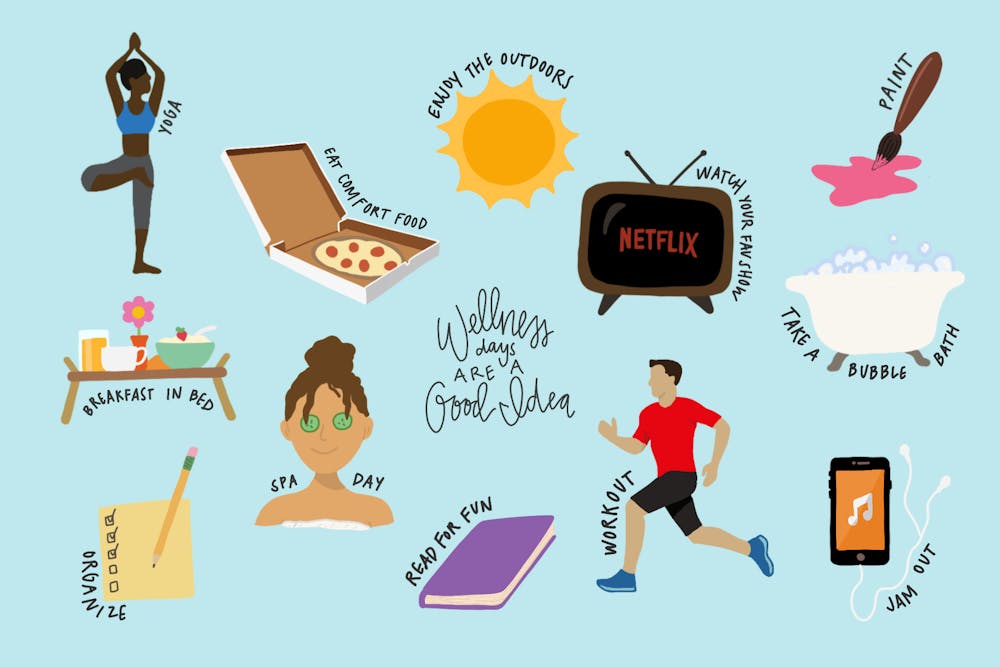While many students have expressed their disappointment in the University of South Carolina’s decision to cancel spring break this year, prohibiting the students from going away for a week and coming back to school all at once will actually be beneficial in keeping the community safe from Covid-19 being spread.
This past month, the school released an email outlining the plans for spring break in which a week will not be given off as normally done in the past; instead, holidays such as MLK Jr. Day and President’s Day will be given off along with four “Wellness Days” scattered in February and March, where no assignments or assessments can be due. Many other colleges in the SEC have also released similar plans for this coming March.
The general response to this decision from students was dismay as many had to cancel plans to travel back home or to go to tropical vacation spots with friends. Many were also outraged over the fact that only four “Wellness Days” were implemented given that a normal spring break warrants five days off.
Despite this backlash, the university’s plans for Spring Break 2020 should actually be heralded as an intelligent approach to handling the Covid-19 pandemic and attempting to stop the spread of the virus or another outbreak within the campus. When the coronavirus first started causing a shutdown throughout the U.S. this past March, many college students were in the midst of spring break and in vacation spots such as Miami, Daytona Beach, and South Padre Island among others. With the majority of students in these locations continuing to party without wearing masks and crowding at bars, the cases within the U.S. escalated as many young people contracted the virus and became ill. Through a study conducted by Ball State and Vanderbilt, GPS smartphone data was utilized to track the movement of millions of college students to find that “Spring break travel may have fueled the spread of the coronavirus back in March.”
While less was known at this time surrounding the coronavirus and its implications on people’s health, current behavior by students at the University of South Carolina alone can easily point to the school’s decision being a good one in the long-run. A large portion of students have faced disciplinary action since coming back to school for throwing parties and events with large crowds of people, neglecting to wear masks and practice social distancing. Such examples include tailgating outside of The Orchard Apartments during the October 17th Auburn football-game where thousands of students crowded into a small space, or just as recently with Halloween parties spread throughout campus. Most notably, a large pool party of 200 people at The Apartments at Palmetto Compress had to be broken up by the fire department in late August during the school’s peak of Covid-19 cases of over 1,000. This event was so shocking that it even made national news. Who is to say that students will be more careful during spring break given their reckless behavior in the past?
Granted, only providing four “Wellness Days” to students during the spring semester is cutting short of the very-needed break that most college kids need in the midst of a busy school year. With crazy hybrid-based schedules, excessive amounts of schoolwork, and involvement in clubs and extracurricular activities, students should be given at least five “Wellness Days” to take a breather. The CDC has found that impacts of Covid-19 such as social distancing “can make people feel isolated and lonely and can increase stress and anxiety.” Allowing there to be more “Wellness Days” would permit students to prioritize their mental health as school and excessive amounts of homework often cause anxiety among students and takes up a majority of their time.
The University of South Carolina has already provided its students the opportunity to feel as normal as possible by deciding to open up the school instead of closing it down. By cancelling the traditional week-off for spring break and instead providing scattered days off, the university has taken that much further of a step in protecting the health and lives of its students, faculty members, and residents of the Columbia community.

